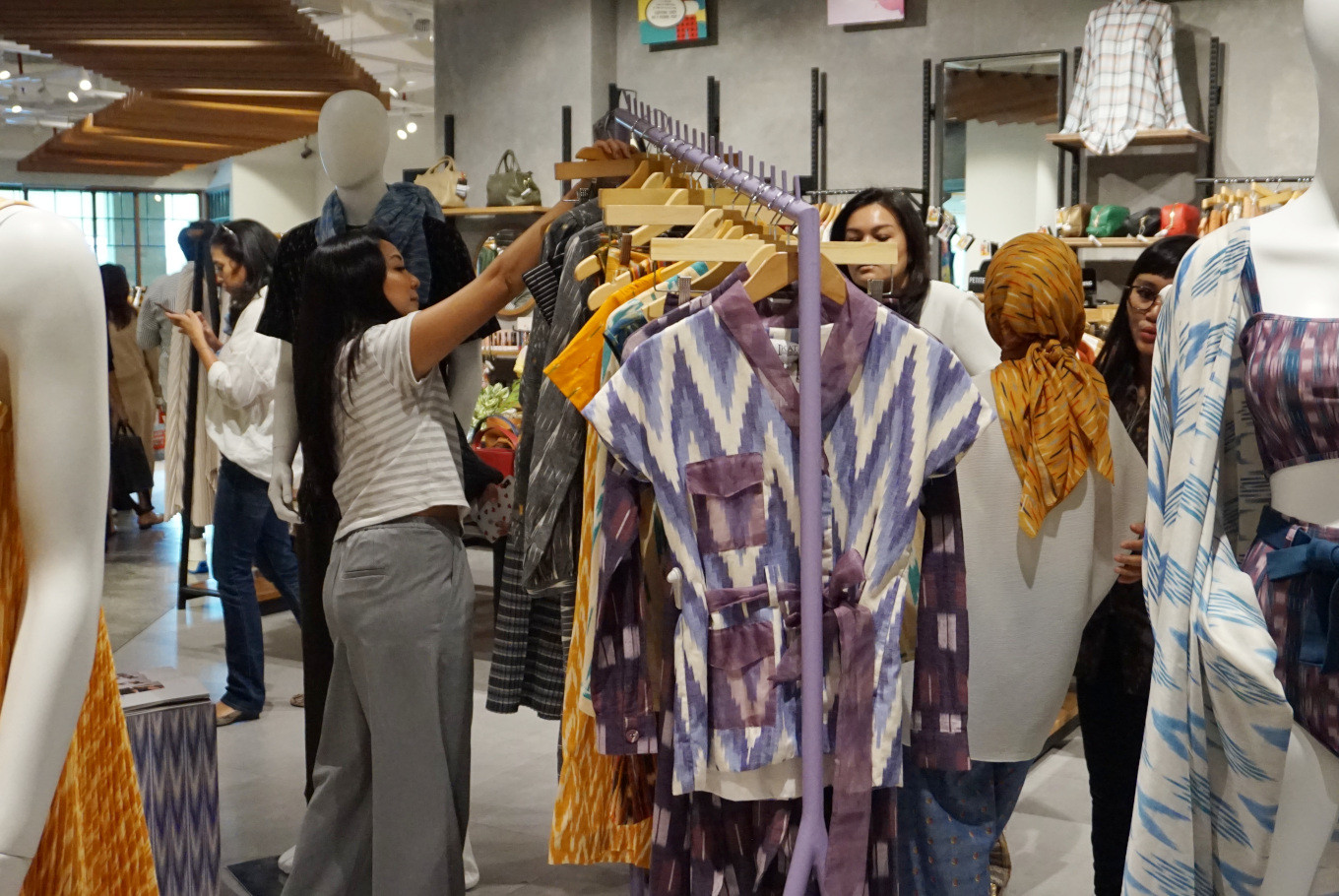Popular Reads
Top Results
Can't find what you're looking for?
View all search resultsPopular Reads
Top Results
Can't find what you're looking for?
View all search resultsThe need for critical consumers in Indonesia's ongoing consumer revolution
Now that more people are able to consume beyond the level of necessity, a non-critical practice of it will potentially bring more harm than good.
Change text size
Gift Premium Articles
to Anyone
I
n today’s world, we have often been encouraged to be ethical and political in making our consumption decisions. By being ethical, it means that we should be aware of the direct and inadvertent effects of our consumption on the people and our planet.
The simple math for this idea is that more consumption tends to lead to more product waste, and the mounting waste will eventually put all the living beings on our planet increasingly in danger. Political consumption, on the other hand, is using our consumption activity as a means to voice our aspirations and values as a community and sometimes to fight against any form of social injustice in society.
Many times, being political also means being ethical. Our fight against climate change by limiting the use of plastic bags, for example, is a simple form of an ethical and political move being made on the part of the consumer. In my personal view, the difference is that in being ethical, sometimes one does not need to be socially persuasive. Our personal moral conviction is all that matters in making the decision, and others need not agree or follow suit.
On the other hand, being political to some extent does involve persuasion, inviting others to join us promote a cause we see as important for life and humanity. In that case, support from others is important for the cause to succeed.
Our government is now particularly concerned with the consumption choices we make every day. President Joko “Jokowi” Widodo has said that Indonesia is undergoing a "consumer revolution". The term was used to refer to the rising number of Indonesian consumers with a monthly expenditure of Rp 2 million (US$ 142) or above, widely known as middle and affluent consumers (MACs), which is predicted to reach 141 million people or half of the total Indonesia population by 2020.
One particular response to this phenomenon is encouraging local producers to improve their capacities in product innovation, as Indonesia is becoming a huge and attractive market for global investors and foreign business players. There is an “our products need to win in our home” spirit in such an effort, and it has been echoed by the media, our elites and previously, through a series of governmental campaigns.
While encouraging local producers is undoubtedly a noble pursuit, it begins to overshadow the importance of ethical and political consumption. By focusing on the role of producers, we tend to leave consumers to act by default, pursuing their own self-interested needs. This is problematic as in the consumer revolution, Indonesian consumers are gaining significant buying power along with the emergence of what is colloquially known as the new rich.
Of course, consumption has been the main driver of our economic growth for decades, but now that more people are able to consume beyond the level of necessity, a non-critical practice of it will potentially bring more harm than good. A critical practice of consumption, by definition, absolutely involves ethical and political concerns.
That said, the main question we should ask is, what do critical consumers usually do? In other words, what are the key profiles of a critical consumer?
To give a simple answer but hopefully not a simplistic one, a critical consumer is someone who considers the social, psychological and environmental consequences of business practices equal to — or even a higher priority than — his or her consumption needs. This is a competence that is arguably more suitable for the MACs.
We know a business is socially and environmentally irresponsible when it is established through coercive land acquisition in the loss of powerless people, violates workers’ rights, implements waste management strategies that endanger the local livelihood and many more. For critical consumers, this kind of information is needed in making consumption decisions, and they would be willing to make an effort to gather this information.
While mass media might still be a popular source of their information, in certain cases, they would conduct mini-research by talking to local people, making observations, watching videos or taking and analyzing photos. In the end, all these things contribute to the enjoyment and satisfaction of their consumption experience. They simply refuse to be unreflective and impulsive, letting their money validate any kind of irresponsible practices behind the scenes, as the competition for economic benefits intensifies following the rise of buying power.
Even without any particular consumer needs, they can also be a voice for those who are voiceless and suffering the consequences of the so-called tyranny of consumption. Almost every day, we are exposed to a constant flux of advertising that either directly or subtly promotes certain kinds of lifestyles, especially on social media. It involves new kinds of clothes to buy, new tourist destinations to visit, a particular kind of ideal body to strive for and more new things to consume and experience. Advertising is usually a medium to normalize a specific idea of “good life” that can be achieved through consumption. It is often a cruel yet effective life-standard communicator for people, regardless of their social and economic backgrounds.
In my personal view, I imagine a critical consumer as someone who cannot be easily persuaded by the propagated messages in advertising but instead can unmask the sometimes-manipulative nature of commercial practices and how they can be so damaging to our sense of self-worth. As in the consumer era revolution, we might expect to see a lot more advertisements and we need critical consumers to voice the problems behind all these goods and services we often take for granted.
Conclusively, I think a consumer revolution is not only about being a self-interested consumer who is ready to be satisfied by producers per se. Instead, it is all about being a critical consumer and bringing all our human sensibilities into increasingly consumption-related social interactions, so we can make informed decisions based on social justice and humanity — two foundational principles in our nation.
It is not only about the size of our wallets or bank deposits, but also about having the privilege to be able to do something for the good of our society, not only as producers but also as consumers. When we can integrate the ethical and political aspects into our consumption activities, in my humble opinion, we can also maintain our national dignity. (wng)
***
Joseph is a consumer researcher, currently pursuing his doctoral studies at the University of Liverpool Management School. He is also a member of the Research and Strategic Policy Department at Perhimpunan Pelajar Indonesia, United Kingdom. The views expressed are his own.











